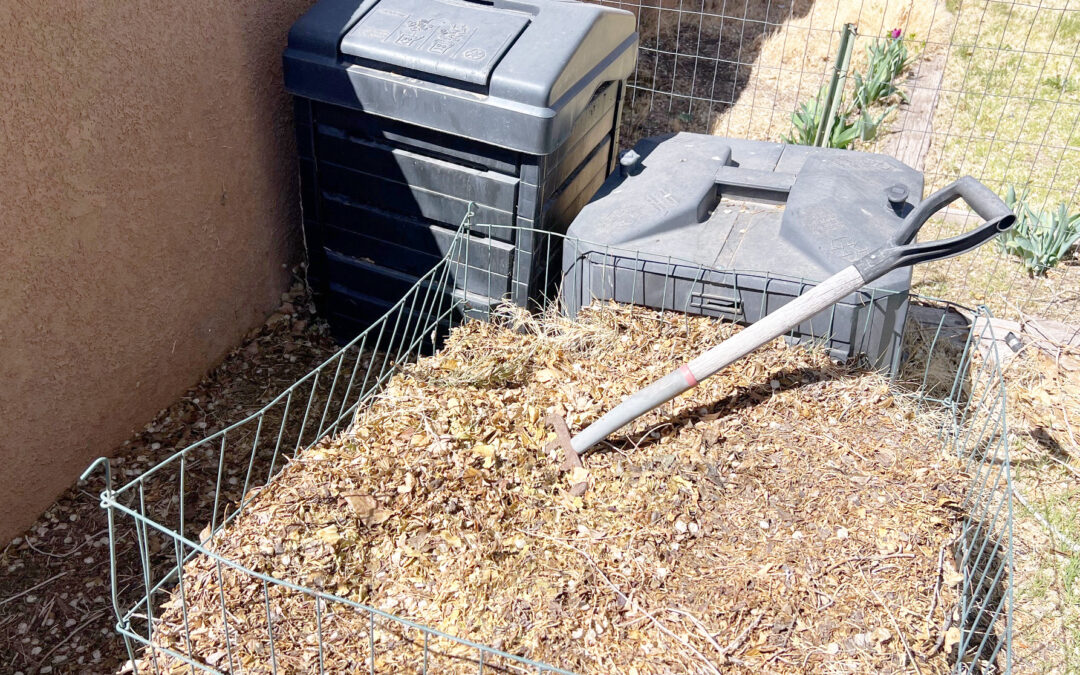Nationally, food waste contributes to 58% of methane fugitive emissions from landfills c/o the EPA. Composting this food waste at your home and in your community helps reduce greenhouse gas emissions while building local healthy soils.
Compost is defined in the dictionary as “a mixture that consists largely of decayed organic matter and is used for fertilizing and conditioning land.” Some people call it black gold because adding to your garden can produce dark, crumbly soil that is like gold for your plants.
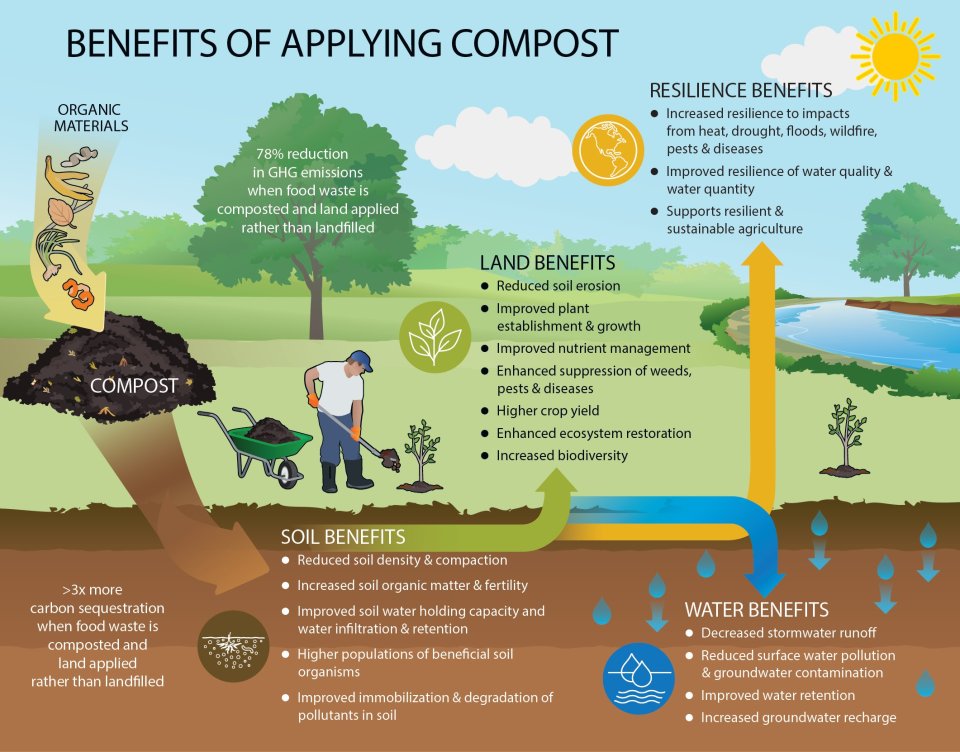
Composting requires three ingredients. The first is brown material from your yard like leaves, twigs and pinecones as well as newspapers, paper egg cartons, straw and so on. Green material, or food waste, is the second. For example, vegetable and fruit scraps, coffee grounds, crushed eggshells, or tea bags. The third is moisture — water goes a long way.
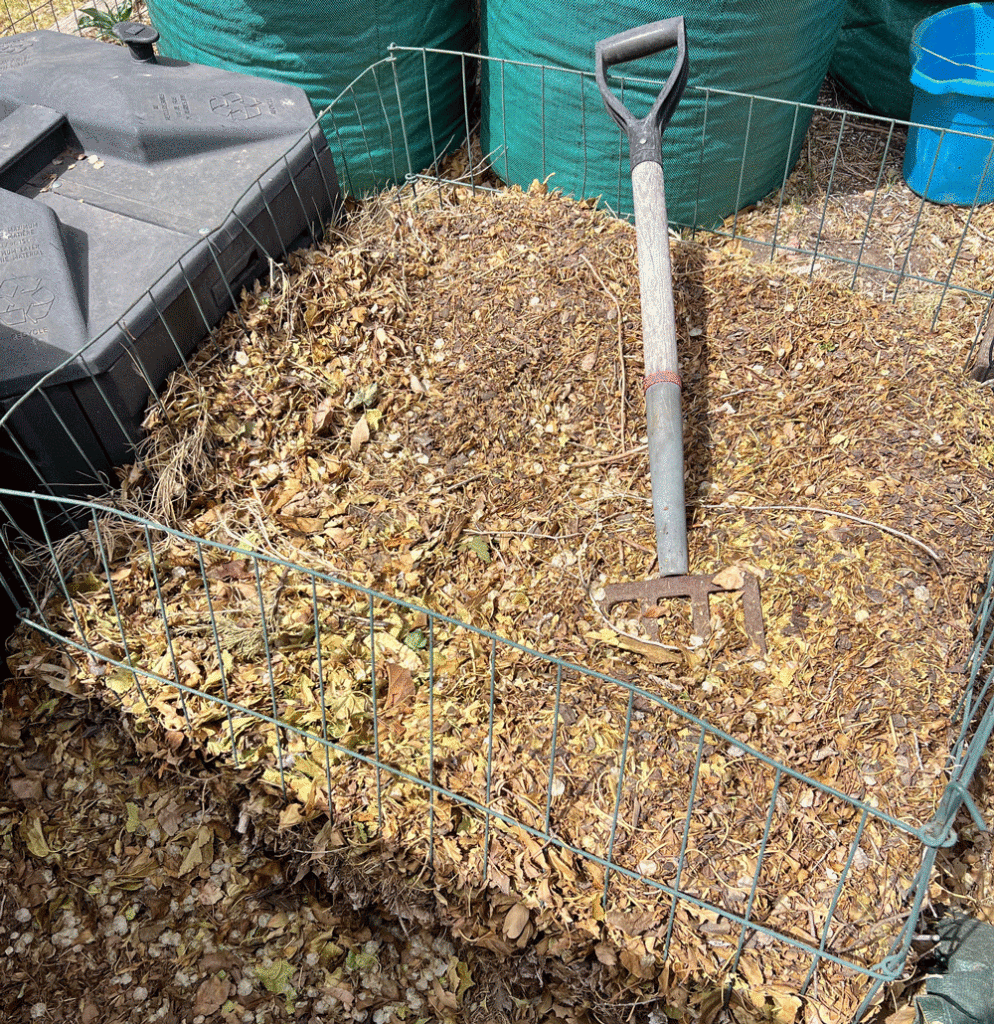
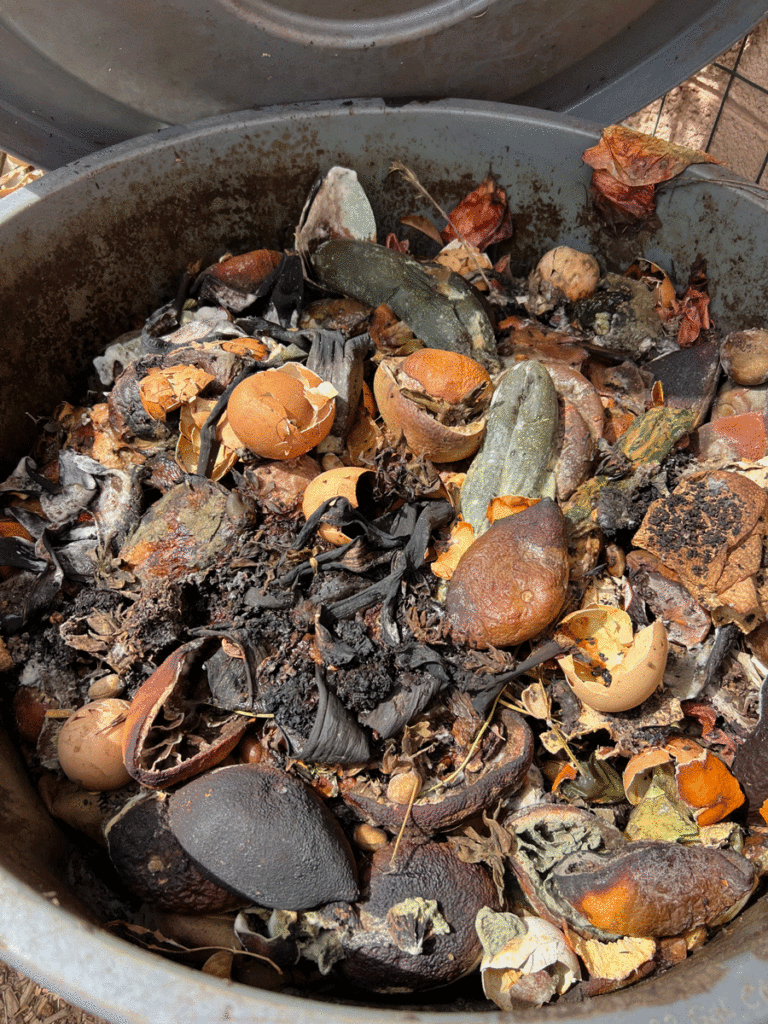
Outdoor Composting
For years locals have been composting outdoors by layering the three ingredients above in a variety of methods while keeping the pile turned to get oxygen into the pile. Bin composting, pit composting, worm composting and so many more methods can work in your backyard. Check out these articles and resources about these methods to find a method that works in your yard.
Electric Composting
A new type of composter has hit the market: electric composters. These are simple indoor recycling machines that are plugged into the wall. The heat, grind and aerate food scraps to speed up the process, creating compost in a very short period. There are many types, some that sit on the counter and some that look like trash bins in your kitchen. One downside is that these machines can be pricey, ranging from $300 to $700.
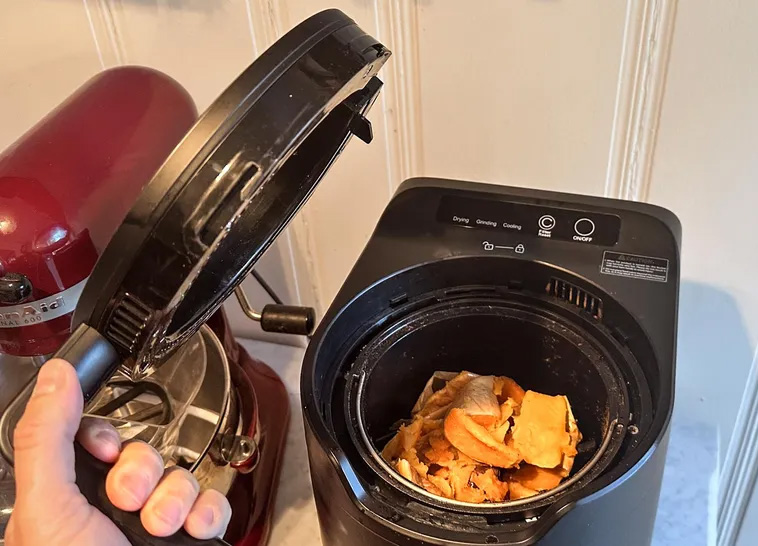
Composting Service
The last and perhaps the easiest method may be to drop all your food items into a bucket that you leave on your front porch. A service provider picks up the bucket and composts the material. You pay a monthly fee and after a bit you get compost delivered to your door. Prices are $22 a month for biweekly pickups.
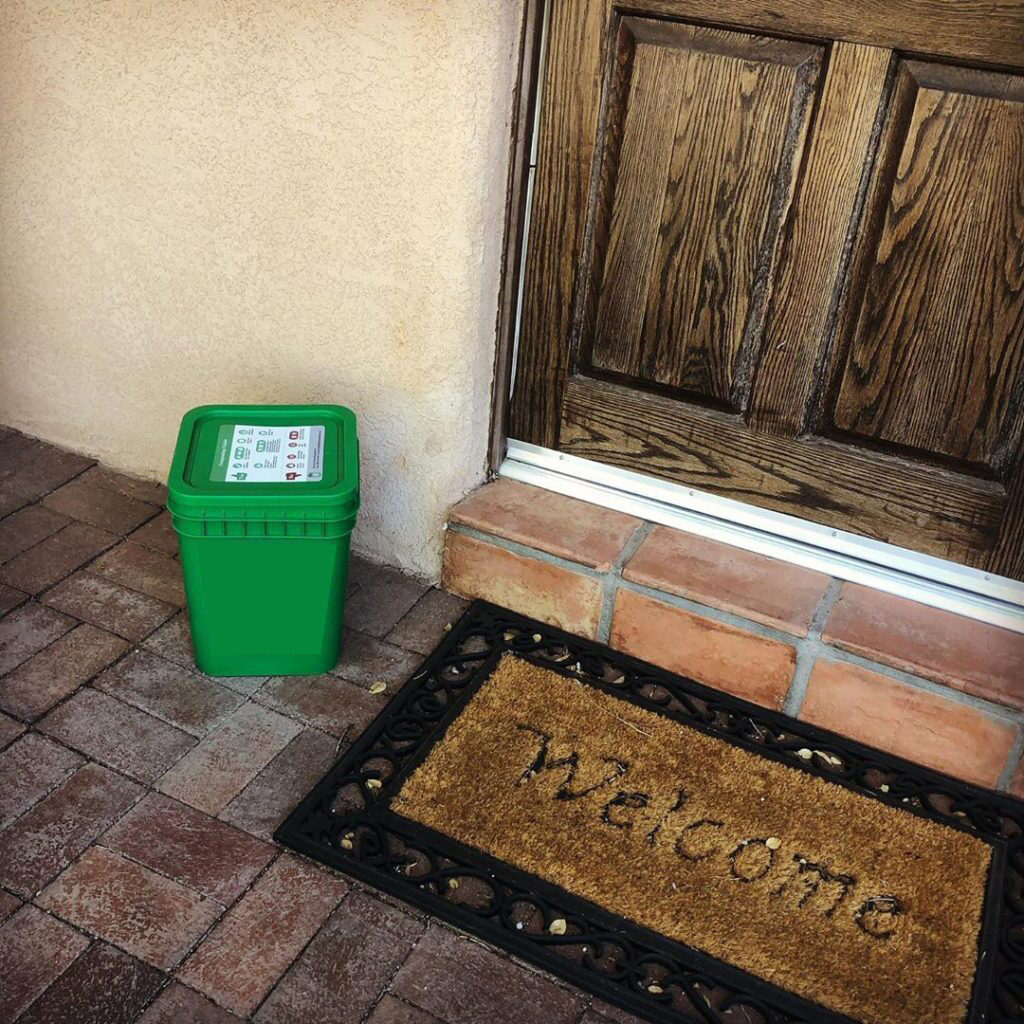
The City of Albuquerque’s Sustainability Office is taking on Food Waste. Are you interested in diverting food scraps from the trash and turning it into compost to feed local soils? Please consider joining one of our community compost co-op sites.
Below are workshop options in April and early May.
- Option 1: Take the compost science and hands-on learning classes.
- Compost science: Attend the April 12 Home Composting Basics class offered by the Master Composters.
- AND
- Hands-on learning: Friday, April 25, 2-4pm at Barelas Senior Center’s community compost site. Note: We will plan more hands-on opportunities this summer.
- Compost science: Attend the April 12 Home Composting Basics class offered by the Master Composters.
- Option 2: Learning Series at Barelas Senior Center.
- Tuesday, April 22, 10:30-11:30am, Introduction to compost science and hands-on learning. Participants can choose a free plant!
- AND
- Tuesday, April 29, 10:30am-noon, Compost science, indoors. Register here.
- AND
- Tuesday, May 6, 10:30-11:30am, Hands-on learning.
- Tuesday, April 22, 10:30-11:30am, Introduction to compost science and hands-on learning. Participants can choose a free plant!
Please help us spread the word about this opportunity to get involved in building healthy soils and community resilience. If you have questions, please email swest@cabq.gov.
Learn more here:



